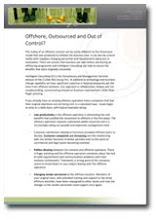A skills gap is set to rear its ugly head next year, but some employers are still reluctant to train their staff. This may be because they are afraid that employees will move on and take their skills to another employer (or worse a competitor), but according to research, they shouldn’t be so worried. 57% of ‘upskillers’ develop themselves in the hope that they may get promoted with their current employer. As we approach 2015, we’ve decided to put together a few ideas for how you can develop your own career and skillset to make yourself especially valuable in the New Year.
Here’s how to make sure you are part of the 66% of UK employees who are seeking additional education or training outside the workplace. Below are three of the top skills globally recognised as needing development in the workplace, and ways in which you can easily improve them without significantly eating into your spare time:
1. Learn to lead
According to KGWI 41% of workers want to improve their leadership skills, and one of the best ways to do this is to become a school governor. You don’t have to be a parent, just passionate about education in your area. Not only will it develop your skills in analysing data, dealing with budgets, performance management and employment issues, but it will also give you the chance to make a difference in your community.
Developing your boardroom skills as a school governor is a great opportunity to focus on the strategic, innovative aspects of leadership, without having to worry about administrative tasks. Even better, this won’t take up all your time; not only do most school’s governing bodies meet just twice a term but, under employment law, employers may give employees who are school governors reasonable time off to carry out their duties.
2. Learn a language
As more and more organisations branch out globally, KGWI found that 64% of workers want to add value to their skillset by becoming bilingual. There are many ways you can do this. One of the most popular (and free!) is an app called Duolingo; it teaches you in a similar way to how you learn to speak as a child, making it very logical and easy to learn quickly.
If your organisation is international, show your commitment and keenness to improve by asking to spend some time in another country. This is by far the best way to learn; most people can become fluent in a language in just three months if they throw themselves in at the deep end! But there are some more passive learning techniques for you if you’re a busy bee, including watching films, listening to audiobooks and reading children’s books in your chosen language. You will be surprised how quickly and subconsciously you can pick it up once you begin surrounding yourself with it.
3. Read more
All jobs require some form of written communication. Luckily, improving your written communication skills can be effortless; just read! Find just half an hour before bed each night, on your commute or in a coffee shop to read a book. Your literacy will grow without you noticing it, and this will automatically improve your own writing skills.
These are the types of skills which will set you apart from other jobseekers. Demonstrate your initiative and thirst for knowledge, and show the employers of 2015 that you are exactly what they are looking for!







No comments:
Post a Comment